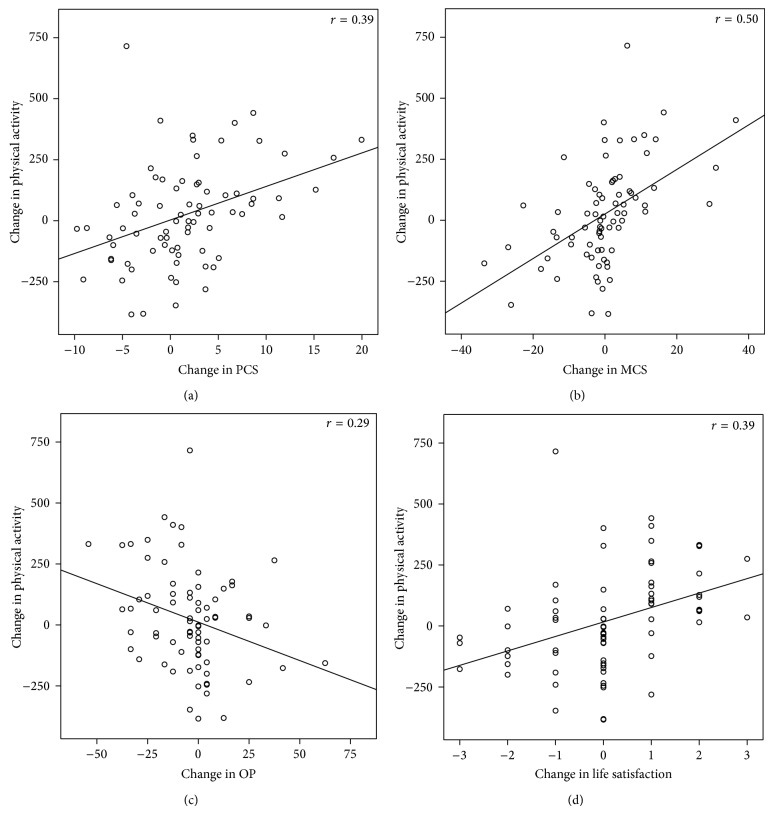Figure 2.
(a)–(d) Correlations between change in accelerometer assessing physical activity (counts per minute) and change in (a) PCS, (b) MCS, (c) OP, and (d) life satisfaction during the two-year lifestyle intervention for severely obese adults. PCS (physical component summary) score of the Medical Outcomes Study Short-Form 36 Health Survey (SF-36). Scale: 15.4–62.1. Higher scores represent better health-related quality of life. MCS (mental component summary) score of the Medical Outcomes Study Short-Form 36 Health Survey (SF-36). Scale: 10.1–64.0. Higher scores represent better health-related quality of life. OP: Obesity-Related Problems scale. Scale: 0–100. Higher scores represent more obesity-related problems. Life satisfaction. Scale: 1–7. Higher scores represent better satisfaction with life.

